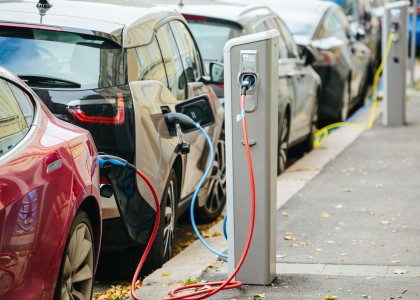Washington, DC—The American Council for an Energy-Efficient Economy (ACEEE) released the following statement from Steven Nadel, its executive director, in response to President Biden’s announcement of his infrastructure plan:
“This sweeping plan is an excellent starting point for transforming our infrastructure to create jobs, increase equity, and enable a low-carbon future. President Biden campaigned on many of these smart ideas, and today he has followed through to press for making them law.”
“Biden’s plan includes major efficiency investments that would cut carbon emissions and the energy costs that are such a challenge for many families and businesses. Congress should build on these ideas.”
“Too much of today’s outdated infrastructure just doesn’t work for us. We live and work in buildings that waste energy and often risk health and productivity; we use inefficient vehicles that often provide poor mobility choices or unreliable freight movement; and we have underinvested in our industrial plants and workers, at times making us vulnerable to foreign competitors and disruptions in global supply chains. We’ve made progress, but we’re still not close to the investment we need to avert a climate catastrophe. At our current pace, it would take half a millennium to retrofit all houses and multifamily buildings to cut their energy use, and that’s time we don’t have.”
“This plan would be a big step toward meeting our economic and climate challenges. Congress will need to flesh it out and go further. It should incentivize the purchase of electric trucks to take the heaviest polluters off the road, and it should seek to build even more charging stations. It should invest in additional transformative technologies to improve competitiveness and reduce carbon emissions in our industrial sector. And it should provide grants and rebates for millions of energy retrofits, including in low- and moderate-income multifamily and single-family homes.”
The Biden administration’s plan calls for increased investments in underserved communities, including $100 billion in targeted workforce development programs. It features numerous energy-saving policies across several sectors, including:
Buildings:
- Produce, preserve, and retrofit a million affordable, energy-efficient housing units; build and rehabilitate 500,000 housing units for low- and middle-income homebuyers; invest $40 billion to improve the energy efficiency and safety of public housing; extend and expand tax credits to spur efficiency improvements in homes and commercial buildings.
- Invest $100 billion to upgrade and build public schools, including energy efficiency upgrades.
Transportation:
- Invest $85 billion in public transit and $80 billion in rail.
- Invest $174 billion in electric vehicles, including through rebates and tax incentives; build a network of 500,000 vehicle chargers.
- Address historic inequities, including by investing $20 billion in reconnecting neighborhoods cut off by past infrastructure.
Industry:
- Invest $135 billion in R&D to improve industrial competitiveness and reduce sector emissions.
- Invest $218 billion to modernize and decarbonize American manufacturing.
Power Sector:
- Establish an energy efficiency and clean electricity standard to cut energy bills and shift toward zero-carbon energy sources.



